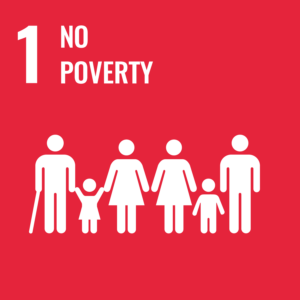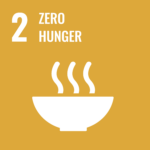
Highly Cited Researchers are making a significant impact in sustainability research. In this blog post, we put a spotlight on those focusing on the first two Sustainable Development Goals, No Poverty and Zero Hunger.
The Highly Cited Researchers™ recognition program is produced annually by the Institute for Scientific Information (ISI) at Clarivate™ with analysis led by David Pendlebury, Head of Research Analysis and Ryan Fry, Senior Product Data Analyst.
This program recognizes scientists whose research demonstrates significant influence, seen through high citation rates of their works over the last 11 years. This recognition of exceptional scientific performance of research articles covers 21 fields (as used in the Essential Science Indicators™, or ESI, from Clarivate) and includes thousands of researchers around the world. The 2021 list identifies about 3,800 Highly Cited Researchers in the 21 fields of the sciences and social sciences, and about 2,800 Highly Cited Researchers with multiple fields.
The SDG Publishers Compact and our commitment to it
 Developed by the United Nations in 2015, the Sustainable Development Goals (SDGs) include 17 global calls for action to ensure peace and prosperity for people and the planet.
Developed by the United Nations in 2015, the Sustainable Development Goals (SDGs) include 17 global calls for action to ensure peace and prosperity for people and the planet.
The UN identified special considerations for publishers with the release of the SDG Publishers Compact which includes 10 action points that publishers, publishing associations and others can commit to undertaking in order to accelerate progress towards the Sustainable Development Goals by 2030. One action item for publishers is a commitment to promote and communicate about SDGs through marketing, websites, promotions and projects.
At Clarivate, we serve the STM research and publishing communities. For example, Ryan Fry led an ISI initiative to use CWTS Leiden’s SDG queries to pave the way for mapping SDGs in InCites™. Sixteen of the 17 SDGs are now available as distinct Research Areas in InCites, applied at the document level.
Recognizing the contributions of Highly Cited Researchers towards the SDGs
In this blog series, we showcase a few Highly Cited Researchers and their scientific papers that demonstrate exceptional impact corresponding to the SDGs. While we’re pleased to celebrate these scientists leading the way in sustainability research, these spotlights are not meant to be comprehensive lists of all Highly Cited Researchers contributing to a given SDG; there are many other Highly Cited Researchers that have also contributed to these SDGs, not named here.
In this first post, we focus on SDG 1: No Poverty, which aims to eradicate extreme poverty for all people by 2030 and SDG 2: Zero Hunger, which aims to end hunger and ensure access to safe, nutritious, and sufficient food to all.
SDG 1: No Poverty
 SDG 1: No Poverty aims to eradicate poverty by implementing social protection systems for the poor, build resilience to environmental, economic and social disasters, ensure equal rights to ownership, basic services, technology and economic resources and more.
SDG 1: No Poverty aims to eradicate poverty by implementing social protection systems for the poor, build resilience to environmental, economic and social disasters, ensure equal rights to ownership, basic services, technology and economic resources and more.
For this goal, we celebrate Highly Cited Researcher 2021 and Professor Liu Yansui, who is a land use and rural geography specialist at the Chinese Academy of Sciences. His paper “Spatio-temporal patterns of rural poverty in China and targeted poverty alleviation strategies” received more than 170 citations across Web of Science™ databases. In this paper, Prof. Liu et. al., sought to discover the main characteristics of poverty in rural Mainland China and its driving mechanism. Using poverty data, his team was able to demonstrate the main areas in China where poverty is acute, its potential spread across regions, as well as its causes.
The paper offers guidance and strategy to policymakers on ways to combat poverty using technology, vocational training, improved major infrastructure and public service construction, among others.
“It is necessary for China to implement differential policies for poverty alleviation to end poverty in all of its forms everywhere… China should make full use of the late-developing advantages in poverty-stricken areas and construct a new platform of rural reconstructing. Building the new-type subjects of rural transformation in poor areas also seems to be imperative.”
SDG 2: Zero Hunger
 SDG 2 aims to end hunger and all forms of malnutrition, double agricultural productivity in the next 15 years as well as the productivity and income of small-scale food producers, and create universal access to safe and nutritious foods.
SDG 2 aims to end hunger and all forms of malnutrition, double agricultural productivity in the next 15 years as well as the productivity and income of small-scale food producers, and create universal access to safe and nutritious foods.
For SDG 2, we identified Highly Cited Researcher 2021 and Professor Pete Smith, Chair in Plant and Soil Sciences at the University of Aberdeen, United Kingdom. His paper “Strategies for feeding the world more sustainably with organic agriculture” received more than 200 citations across Web of Science databases.
In the article, the authors created a food system model that addresses organic agriculture conversion, reduction in food wastage and animal products consumption to reduce greenhouse gas emissions and address hunger.
“Our study shows that organic agriculture can contribute to providing sufficient food and improving environmental impacts, only if adequately high proportions of legumes are produced and with significant reductions of food-competing feed use, livestock product quantities, and food wastage. The development of organic agriculture in the future should take up these challenges on the consumption side, and not only focus on sustainable production”
“What I wanted people to take away from this study is that we can feed the world using more sustainable forms of agriculture, but only if we change the balance of food we eat, for example, by radically reducing meat and dairy consumption in over-consuming countries. Ever greater levels of agrochemical inputs into agriculture is not a given, if we reimagine what food we eat and how we produce it.”
Another Highly Cited Researcher 2021 who works in the SDG 2 arena is Professor Marcel G.A, van der Heijden, Department of Plant and Microbial Biology from the University of Zurich. His article, “An Underground Revolution: Biodiversity and Soil Ecological Engineering for Agricultural Sustainability” received more than 450 citations across Web of Science databases.
In this article, the authors demonstrate how targeted manipulations of soil organisms can support soil biodiversity, which in turn enhances sustainable ecosystems.
“Our review demonstrates that soil organisms have the potential to enhance sustainable ecosystem functioning. We are now beginning to realize the potential below our feet and its importance for plant productivity and environmental sustainability. Humans are taking much from the soils of the Earth, and a one-sided focus on high production in agricultural settings has resulted in the successive deterioration of the fundamental properties of those soils, including the biological potential for self-regulation”
“Our paper demonstrates that it is possible to enhance the sustainability of ecosystems by taking measures that promote soil biodiversity. We provide examples that show that a wide range of soil biota provide nutrients to crops or suppress disease. Stimulating such organisms in ecosystems through specific measures (soil ecological engineering) enhances the sustainability of ecosystems and reduces the need for inputs (fertilisers, pesticides).”
In our next post, we recognize Highly Cited Researchers 2021 who work in SDG 3: Good Health and Wellbeing and SDG 4: Quality Education.
At Clarivate, sustainability is at the heart of everything we do. Read our Corporate Sustainability commitment, or view our Sustainability eBook collection brings together 5,000 titles for research, teaching and learning.
About the authors
Ryan Fry is a Senior Product Data Analyst at the ISI. Since 2013, he has worked for Clarivate in various roles in User Experience and Technology before joining the ISI in 2019. He manages the yearly Highly Cited Researchers program and works on other bibliometric projects throughout the year.
Gali Halevi is Director at the Institute for Scientific Information. Previously she was Associate Dean of Libraries & Information Sciences at the Icahn School of Medicine at Mount Sinai and the Mount Sinai Health System. She has a background in bibliometrics and has worked in academic publishing and as an information specialist for pharmaceutical and financial companies.
ORCiD: 0000-0003-1967-4147; Web of Science ResearcherID AAD-2257-2021












